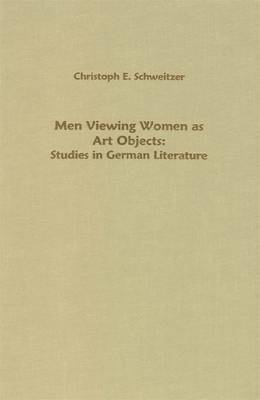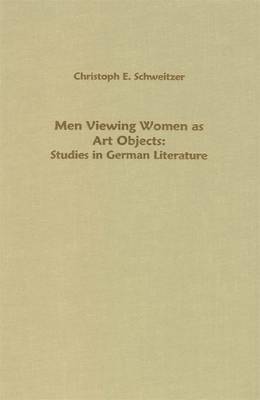
- Retrait gratuit dans votre magasin Club
- 7.000.000 titres dans notre catalogue
- Payer en toute sécurité
- Toujours un magasin près de chez vous
- Retrait gratuit dans votre magasin Club
- 7.000.0000 titres dans notre catalogue
- Payer en toute sécurité
- Toujours un magasin près de chez vous
86,95 €
+ 173 points
Description
Varied images of women studied in a variety of German texts as a springboard for plot or character. A man looks at the portrait of a woman and then sets out to 'liberate'her and make her his own (Die Zauberflöte, Maria Stuart); an oldman, while looking at the picture of his youthful beloved, reminiscesabout his failedcourtship (Storm's Immensee). These are just twoof many uses of art works depicting women discussed in this book. Theart work can displace the living woman as in Hauff's 'Die Bettlerinvom Pont des Arts', in Jensen's 'Gradiva', and in Schimmang's'Intimität'. A man looking at a painting of himself (E. T. A.Hoffmann's Die Fermate) or a man looking at a sculpture comes toappreciate the beauty of the female figure, both in art and life(Stifter's Der Nachsommer). The innovative approach, which in part goes back to theories developed by Lessing in his Laokoon, yields, via a close reading of a variety of the texts, new insights into their structure and meaning.
Spécifications
Parties prenantes
- Auteur(s) :
- Editeur:
Contenu
- Nombre de pages :
- 117
- Langue:
- Anglais
- Collection :
- Tome:
- n° 1
Caractéristiques
- EAN:
- 9781571132598
- Date de parution :
- 10-05-98
- Format:
- Livre relié
- Format numérique:
- Genaaid
- Dimensions :
- 171 mm x 236 mm
- Poids :
- 326 g

Les avis
Nous publions uniquement les avis qui respectent les conditions requises. Consultez nos conditions pour les avis.






